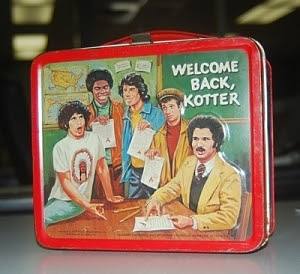Burghart Klaussner, who you may remember as the stern, icy preacher from Haneke’s
The White Ribbon, shows a softer, more vulnerable side in this quietly haunting character study. Klaussner carries the film on his broad, stocky shoulders and, despite the burden, creates a richly complex character that somehow becomes more interesting and intriguing the more we learn about him.
Klaussner plays Herbert, a career German diplomat, who finds himself stationed in Tbilisi, Georgia – a seedy town that, at least in this film, resembles Gary, Indiana surrounded by the scenic beauty of Colorado. Herbert spends his days attending rinky-dink, hastily arranged cultural events followed by numbingly dull meetings in an attempt to broker a foreign aid loan to Georgia from the World Bank. His one enjoyment consists of daily trips to Tbilisi’s bustling farmer’s market, where he scrutinizes apples and carrots with the intensity of an appraiser of priceless antiques.

Herbert may be a man of the world, but he seems oddly disconnected from it. In his lonely apartment, he goes through the rituals of a confirmed bachelor – outside shoes kicked off immediately upon arrival and neatly placed on a mat by the door, evenings spent on the sofa immersed in video games and secret visits from a married coworker for a bit of impromptu and meaningless sex. Safe in his ordered warren, Herbert remains aloof from the hustlers and hooligans who roam the rough-edged streets below.
At the market one day, Herbert is victimized by a clumsy young pickpocket, a 12 year-old tomboy named Sashka (Lika Martinova). While the crime is quickly foiled, Herbert’s reaction is more curiosity than outrage. Slowly he begins to feel a sense of connection with this at-risk ragamuffin, whose home life consists of a squalid hovel populated by junkies and prostitutes. Herbert’s protective instincts emerge and soon the confused and reluctant Sashka is brought into his home as a virtual ward, where Herbert dutifully leaves breakfast and clean clothes out for her every morning prior to departing for work.
But this film is no revamp of
The Blind Side or
My Fair Lady, as director Dito Tsintsadze refrains from spelling out the exact terms of this unusual relationship. Despite the intimacy we feel with Klaussner’s character, it is difficult to say that we actually know him. As he and Martinova interact in increasingly casual ways, a tension begins to fill the cloistered air of Herbert’s flat, as if one misstep could lead to tragic results. When the neighbors – and a couple of corrupt cops- begin unsavory speculation as to just what is going on, there are times when the audience naggingly wonders as well.

Tsintsadze establishes his thesis of characters at a crossroads with such impressive subtlety it only become apparent at the film’s conclusion. Sashka is ready to leave childish things behind and become a beautiful young woman, while Herbert is questioning the value of his life’s work. After years of exercising his do-gooder impulses on a macro level, with unsatisfying results, he has decided to intervene directly in an individual’s life as a self appointed force for good. While his motives may be laudable, Herbert has much to learn and many instinctual snares to untangle, while young Sashka is faced with a dauntingly complex emotional puzzle. A puzzle that, like Herbert’s video game, can bewilder and torment even the most experienced player.
IMDb
Save to Queue










.jpg)
































